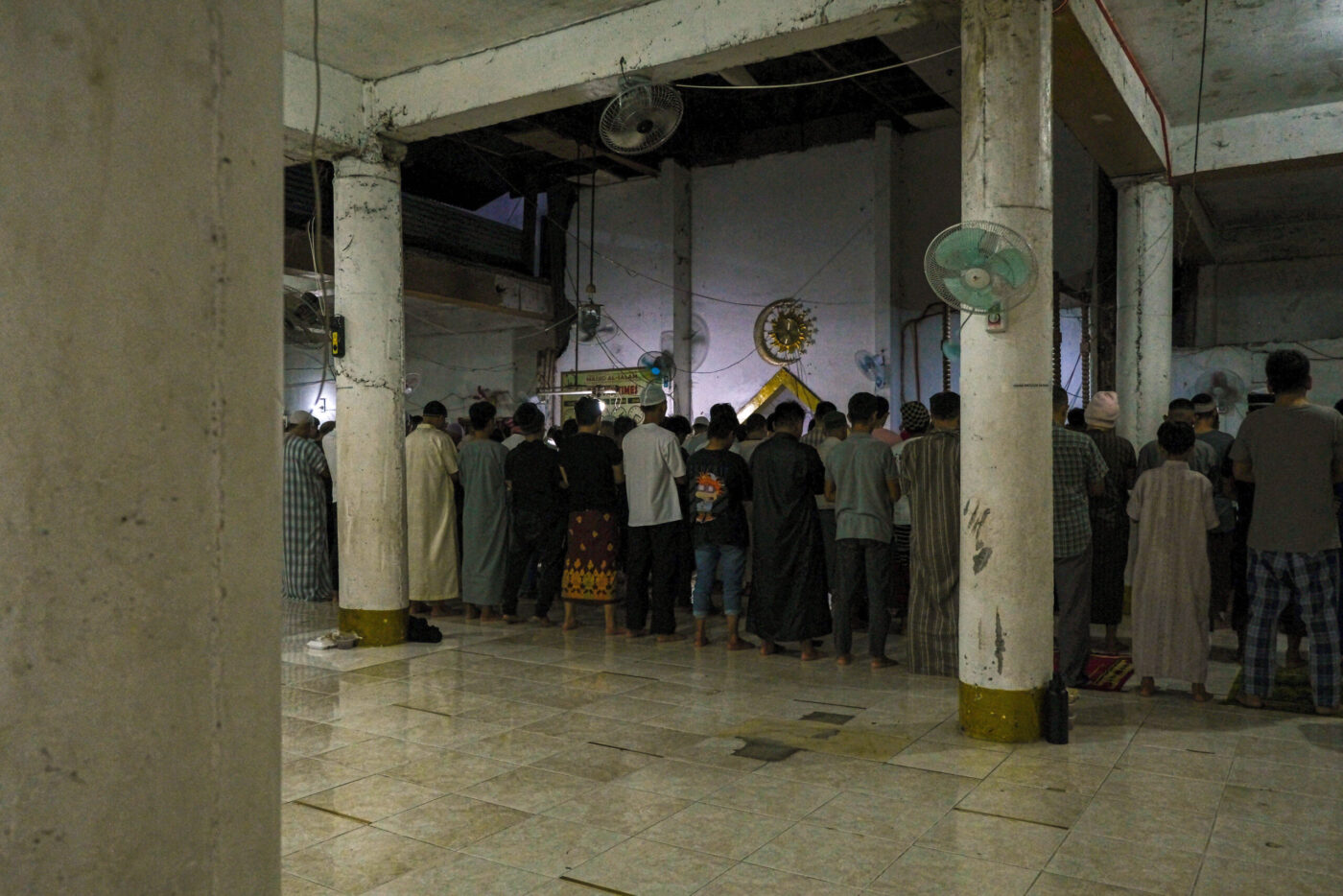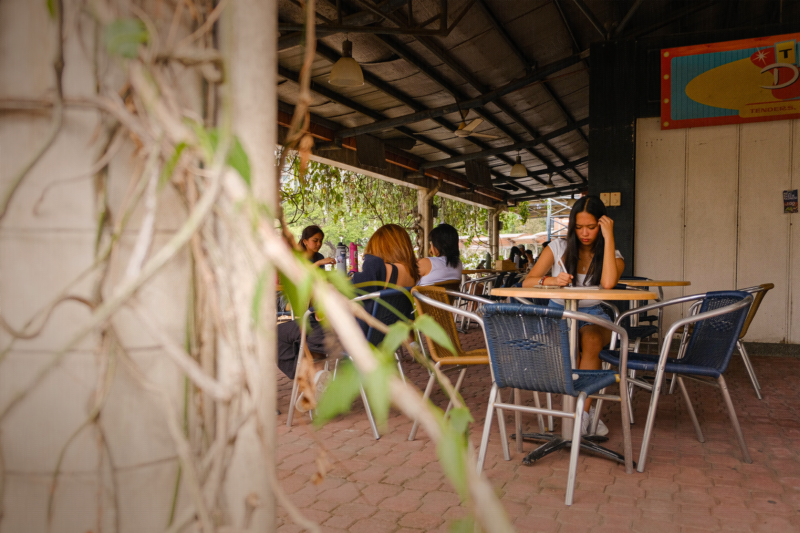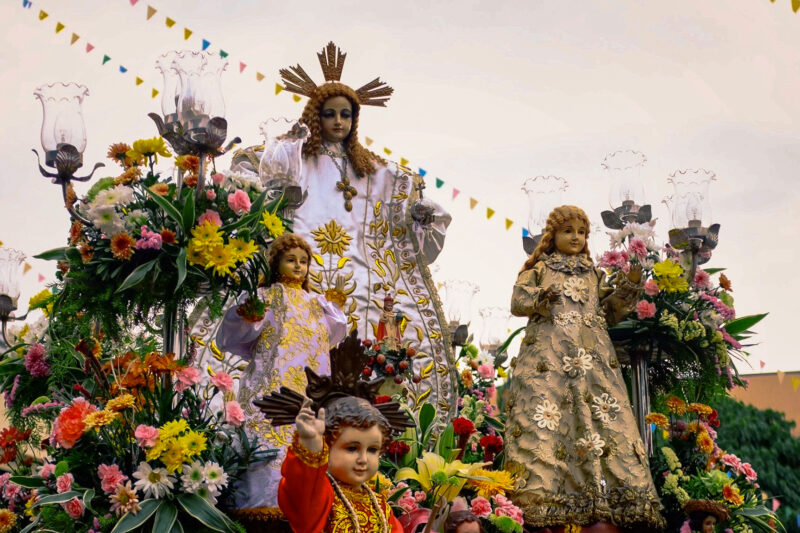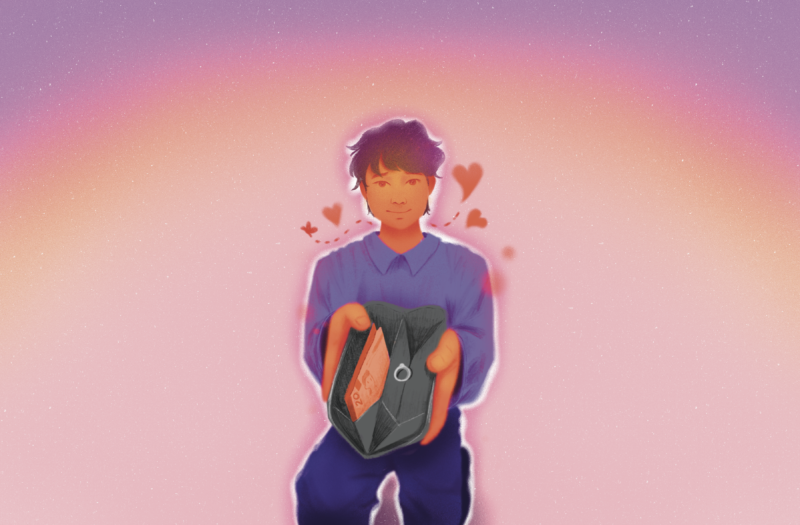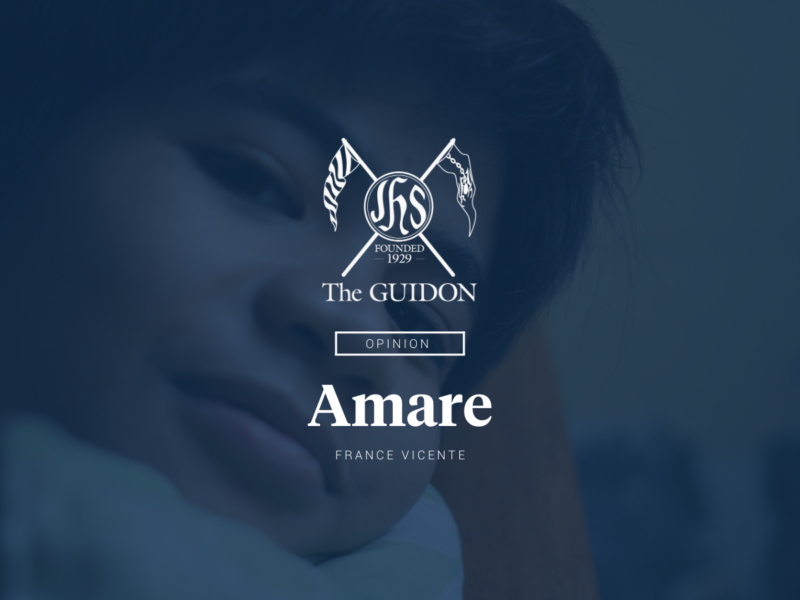As they celebrate Ramadan in the urban metropolis, two Atenean Muslims detail their experiences of practicing Islamic traditions away from their family and communities.
AT THE SIGHT of the new moon, Muslim families gather to feast on homemade, hearty meals together. Not long after, they gather in a sacred space or a mosque, unfurling their mats for their communal prayers. Coupled with Arabian lamps lighting up the streets, this scene indicates only one thing—Ramadan has finally begun.
With every corner beating to the dynamic pulse of the Muslim community, Ramadan stands as a time for personal reflection and collective unity. This period is exemplified by their religious obligations, including five daily prayers and fasting from dawn until dusk.
For Zai Haron (2 BS CTM), transitioning from his Muslim community in Sultan Kudarat to a predominantly Catholic school in Quezon City brought a precedent of challenges as academic responsibilities entangled with religious practices. Similarly, being part of a minority in the metropolis is one that is shared by Datu Amir Wagas (BS LM ‘18), a practicing lawyer based in Pasig City. As Haron and Wagas celebrate Ramadan without their families in Metro Manila, they must recalibrate their traditions accordingly.
When the moon appears
From the sighting of the moon to the culmination of Eid al-Fitr, Ramadan marks a period of reflection and religious reconnection. According to Haron, this month-long celebration is one of his annual highlights.
“Hindi tradition ng family namin to eat together, but then, every Ramadan nagsasalo-salo kami, parang siyang festival. (It’s not a tradition in our family to eat together, but then, every Ramadan we do, it’s like a festival),” Haron says.
Having family and relatives around during Ramadan symbolizes a core spiritual discipline in the Muslim faith—solidarity in sacrifice. With 12 hours of fasting to follow, Haron describes the days to be arduous. However, the struggle dissipates as the sun sets, the time when they break the abstinence with a feast and prayer together with their families.
The act of fasting—one of the five pillars in Islam—strengthens one’s relationships with Allah, as stipulated in the Qur’an. While abstaining from food may seem like a physical sacrifice on the surface, Muslims believe it to serve as an initial leap toward spiritual renewal: If a Muslim can train oneself to reject “allowed” things, then it becomes easier for them to avoid “prohibited” things. Moreover, Wagas says that if you deprive yourself of food and drink, you can focus on relying more on Allah to get through the day.
“During Ramadan, we need to be calm. We can’t be cheap or arrogant. We can’t be harsh to other people. So Ramadan really trains you to try to become a better person. At least that’s the hope, right?” Wagas elaborates.
However, moving to the Metro poses additional burdens for Muslims to observe Islamic traditions.
Far from home
As a student, Haron faces the challenge of having a relatively small Muslim community within the University. “Less than five pa lang ‘yung nakikilala kong Muslim here (I’ve only met less than 5 Muslims here),” Haron says.
Haron says that aside from the 12 PM congregational prayers every Friday, opportunities for interaction remain scarce due to limited initiatives for fellow Muslims within the University.
Moreover, Wagas cites an absence of accessible interfaith prayer rooms, drawing from his experience more than six years ago. “Back in my time, I would just go to the [Office of Campus Ministry] actually, and then I would ask permission from them. I also experienced doing my prayers [at the] School of Management Forest. […] There [weren’t] many spaces for that,” Wagas claims.
While an interfaith prayer room has already been established at the Manuel V. Pangilinan (MVP) Building, Haron laments that the room is sometimes inaccessible. “Mayroong interfaith prayer room sa MVP, but it’s locked (There is an interfaith prayer room at MVP, but it’s locked),” Haron mentions.
Beyond infrastructural limitations, Atenean Muslims also face restrictions in their dietary decisions. “Here sa other place na super unfamiliar ako with, napapaisip ako kung anong mga food ang kakainin ko kasi hindi talaga Halal ‘yung mga food dito (In this other place where I am super unfamiliar with, I find myself thinking what food I can eat because the food here is not really Halal),” Haron shares. Unlike in his hometown, fewer affordable options exist in Katipunan for him to eat pork-free meals aside from buying viands from a nearby carinderia and preparing his own food in the dormitory.
Amid these adjustments, Haron and Wagas make do with what they have. Fortunately, they have formed bonds with people who have served as their support system as they navigate new realities.
Renewed beginnings
Situated within the walls of the university and the broader landscape of the Metro, Atenean Muslims continue to observe Ramadan with the spirit of the Muslim community in mind.
Fortunately, for Wagas, Islamic initiatives within the Ateneo campus have served to be his community away from home. “I really appreciated the Ateneo community. They really worked hand in hand with us to bring legitimate and genuine Islamic scholars to the campus to share about Islam,” he shares.
Meanwhile, Haron happily imparts his reason for powering through his journey of navigating new religious experiences. “Kahit malayo ako sa family ko, I still felt at home pa rin with my dormmates (Even if I am away from my family, I still felt at home with my dormmates),” shares Haron.
As people like Haron find solace within renewed beginnings, he hopes for the Ateneo community to practice greater sensitivity and urgency in addressing the needs of Muslim students. Moreover, Wagas advocates the need for a 15- to 20-minute grace period for Muslim students and staff to break their fast. Ultimately, beyond the profound observance of faith, what Ramadan strives to instill is the importance of community in overcoming shared struggles.

